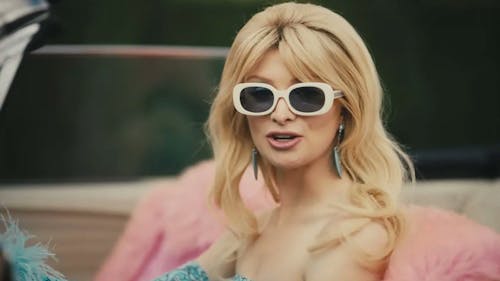Dylan Mulvaney strikes another chord with 'Days of Girlhood'

Dylan Mulvaney, a popular transgender TikToker, garnered significant attention last year when she struck a partnership with Bud Light. Recently, she's found herself in the center of another social media commotion with the release of her new song, "Days of Girlhood."
The song, which is named after her TikTok series "Day __ of Girlhood," adopts similar themes, exploring her experiences as a woman in the 21st century. The timing of the song is no coincidence either — it dropped on March 11, almost two years after the series began.
The song's release prompted a range of reactions from listeners. Some contended that Mulvaney's portrayal of girlhood relied too heavily on women stereotypes, with lyrics referring to shopping and makeup.
Others have argued that she is merely expressing her experiences in the same vein as other iconic feminist anthems like Katy Perry's "California Gurls" and Cyndi Lauper's cover of "Girls Just Want to Have Fun."
Mulvaney set out to set the record straight in her response, asserting that her intention was not to revolutionize gender discourse but rather to celebrate the joy of her transition.
"I could've probably written a song about my pain or my trauma, but I didn't want to," Mulvaney said. "I wanted to write a fun song."
This is evident in the upbeat music and the admittedly "dumb" lyrics that make references to sleeping in and listening to the "Twilight" soundtrack. The music video also evokes the joyous energy of early 2000s rom-coms, a decision that she claims was intentional.
The song reflects her personal journey — represented in lyrics like "girls like me gotta learn the basics" and "girls who helped show me the way / they're why I'm an It girl today."
Despite all of the obstacles Mulvaney's faced, she adopts a positive attitude. She even jokes about the Bud Light controversy, which resulted in a boycott of the brand, singing, "the patriarchy's over, you can hold our beer."
Even though the song has received backlash from "transphobes" and "conservative media" as Mulvaney explains, fans and contemporaries have come to her defense.
TikToker @jordxn.simone encapsulated the sentiment of many, recognizing that while the song may not resonate with everyone, its autobiographical nature offers a unique perspective on girlhood as experienced by a transgender woman.
Even pop star Lady Gaga advocated for solidarity among women in the face of adversity following hate from a joint photoshoot.
Mulvaney's song serves as a catalyst for introspection and debate on the complexities of gender identity and artistic expression. While controversy continues to swirl around her name, Mulvaney remains resilient.



